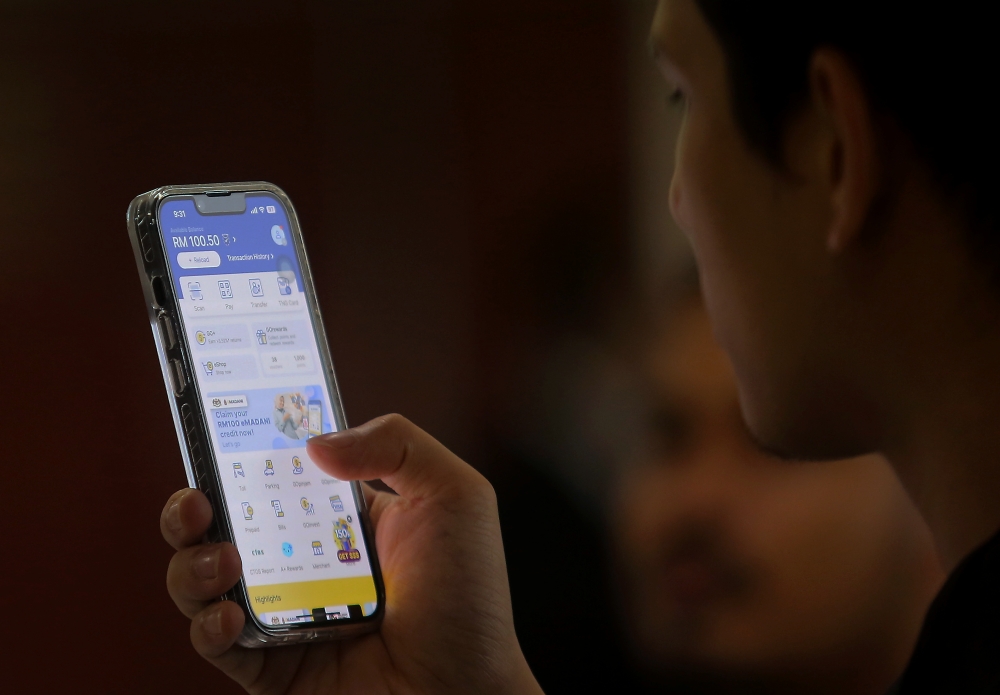KUALA LUMPUR, July 23 — At 7.30am, auditor Nadia Rahman waits for her train to work and whips out her mobile phone.
With a few taps, she orders her breakfast so it arrives at the office fresh and hot, right when she does.
After her meal, she still has time to book a cleaner, pay her credit card bill, shop for groceries, and order lunch – all before stepping into the train.
“Years ago, I envied my friend who could buy everything on her mobile, including groceries, because shops close at 5pm in Australia.
“Technology has definitely caught up in Malaysia, now we enjoy the same conveniences,” she told Malay Mail.
After a long day, she orders a soothing iced milk tea and a big dinner to be delivered just as she gets home.
For a small fee, she avoids traffic, parking woes and crowded shops – all without ever leaving her screen.
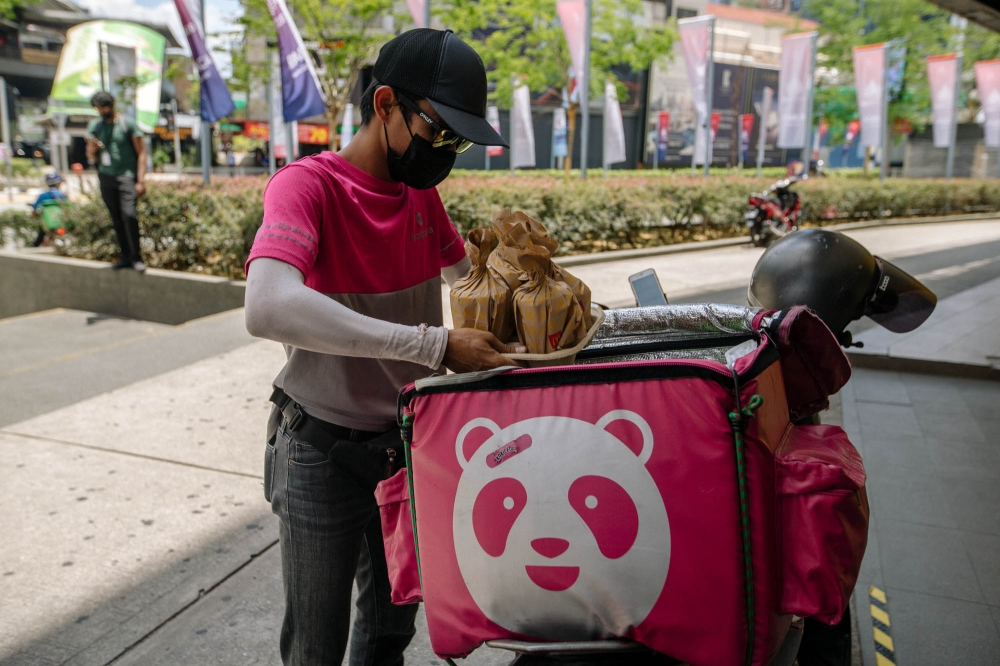
During the lockdowns, Malaysians turned to GrabFood, ShopeeFood, and AirAsia Food for everyday meals. — Picture by Firdaus Latif
For Malaysians like Nadia, who are constantly on the move, mobile apps are no longer just convenient – they are essential.
Living life through apps
Usage of mobile apps in Malaysia really took off when Covid-19 hit in 2020.
With lockdowns and movement restrictions, Malaysians turned to their phones for everything, from groceries and dinner to bubble tea and household goods.
What started as a necessity has now become a lifestyle.
Five years later, the influence of mobile platforms – especially those from China – is unmistakable in how Malaysians shop, eat and spend.
Platforms like Temu, Shein, TikTok Shop, and ShopeeFood have shaped consumer expectations around price, speed and convenience.
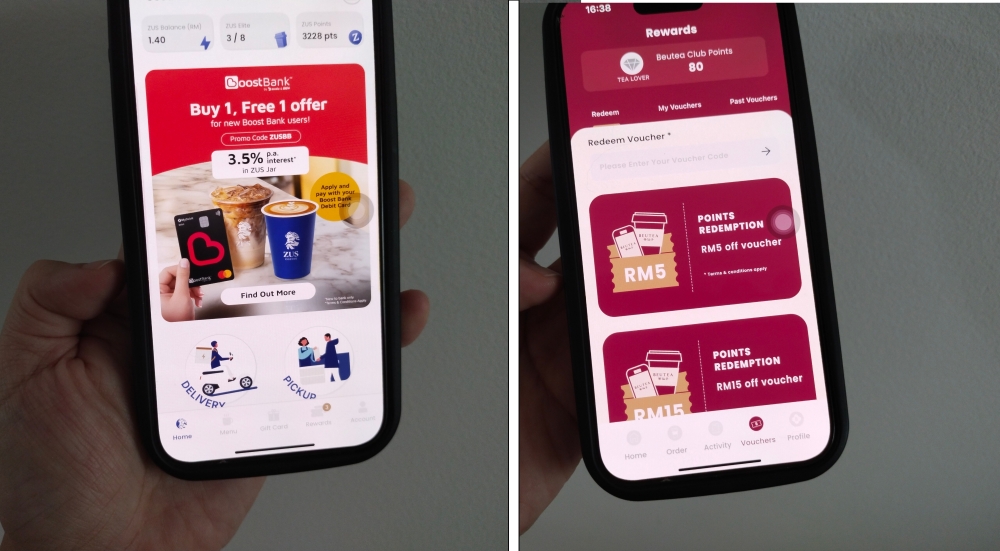
Mobile applications today often reward users with point systems and loyalty programmes.
Taking after China
One of the most influential models behind this shift is Meituan, China’s leading all-in-one super app.
Launched in 2010, Meituan became a digital powerhouse by combining food delivery, hotel bookings, grocery and lifestyle services, and AI-powered recommendations – all in one app.
Though Meituan doesn’t operate in Malaysia, its blueprint is visible in Grab, Shopee and Lazada.
Today, Malaysians can use a single app to order food, pay bills, book a ride or shop online – much like Meituan’s one-stop model.
The appeal is boosted by loyalty points, promo codes and flash deals.
Once, shoppers wanted to feel and touch items before buying; now, they’re filling digital carts without hesitation.
Platforms like Temu (known for low prices and group-buy deals), Shein (fast fashion giant), AliExpress and Taobao have made cross-border shopping the new norm, especially for urban youth and middle-income users.
Temu, for instance, uses gamified experiences, flash sales and social incentives – tactics pioneered in China.
Similarly, Lazada and Shopee offer game-based shopping, social sharing bonuses, and lightning deals.
Food delivery, too, has become second nature for many Malaysians.
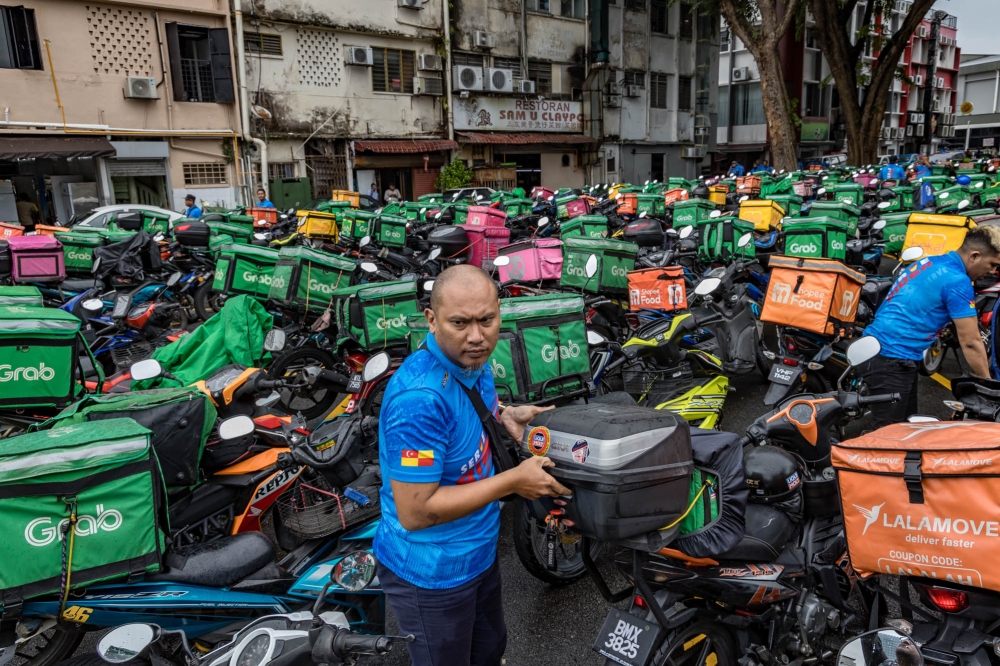
When the Covid-19 pandemic hit Malaysia in early 2020, lockdowns and movement restrictions forced millions of Malaysians to change how they lived, worked, shopped, and ate. — Picture by Firdaus Latif
What started with GrabFood, ShopeeFood and AirAsia Food during lockdowns is now fully embedded in daily routines.
These apps now include Meituan-style features such as personalised food suggestions, AI-based timing, free delivery campaigns, voucher stacking and rewards.
Meanwhile, more China-based F&B chains are expanding into Malaysia, including Hey Tea, Chagee, Mixue, and most recently, Luckin Coffee.
Local brands like Zus Coffee and Beutea are using the same strategies – apps that allow for point collection, delivery, pickup, and electronic loyalty stamps.
Zus Coffee users can redeem drinks, schedule pickups or deliveries, and earn rewards.
Beutea, inspired by Chinese tea outlets, also offers app-based ordering, loyalty perks and delivery.
But it doesn’t stop there.
Going beyond F&B
Healthcare services can also be accessed via mobile apps – from consulting a doctor to booking tests, tracking fitness or buying supplements.
Even government services have gone digital, from renewing road tax and paying fines to checking your EPF balance, all through apps like MyJPJ, MyEG and MySejahtera.
Entertainment has also shifted – Malaysians now stream Netflix, listen to Spotify, buy movie tickets and plan trips, all from their phones.
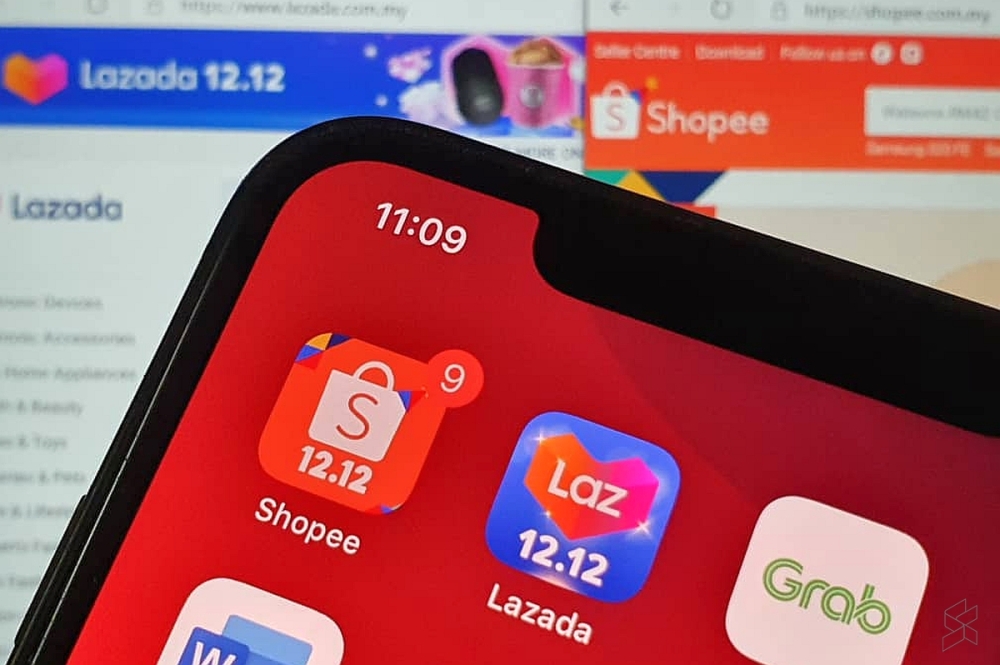
Malaysians today can depend on a single app to do multiple things. — SoyaCincau pic
But is it all fine and dandy?
While consumers enjoy cheaper prices, wider variety and time savings, Chinese-linked platforms’ dominance is also sparking concern.
These apps have opened new doors for local SMEs and micro-businesses, who now sell through TikTok Shop, Lazada and Shopee – reaching even rural areas.
But at the same time, local brands struggle to compete with China’s ultra-low prices and efficient logistics.
There are also rising worries over digital consumption – including data privacy, growing consumer debt and unhealthy eating habits.


